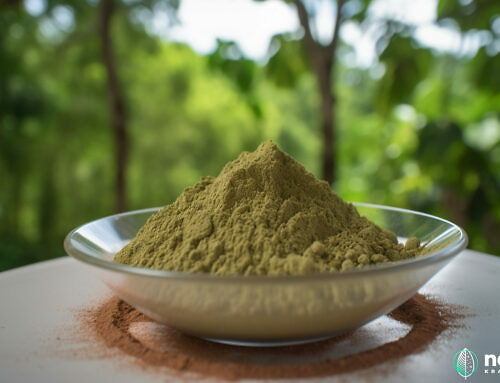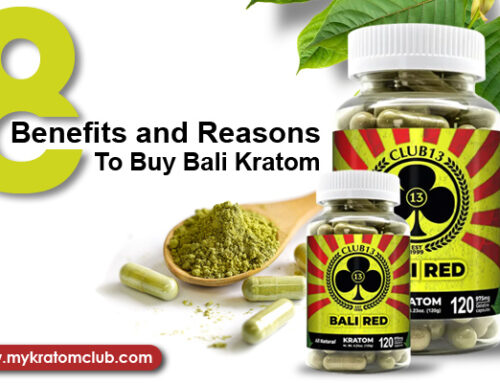If you’ve been curious about the potential health benefits of kratom, you’re in the right place! In this article, we’ll dive into what the science says about this fascinating plant. Kratom, scientifically known as Mitragyna speciosa, is a tropical evergreen tree native to Southeast Asia. It has gained popularity in recent years for its alleged medicinal properties, but what does the research actually reveal? Let’s find out!
When it comes to kratom, there’s a lot of buzz and speculation surrounding its potential benefits. Some proponents claim that it can help with pain relief, improve mood and focus, boost energy levels, and even alleviate symptoms of opioid withdrawal. But before we get carried away, it’s crucial to examine the scientific evidence behind these claims. By exploring the available research, we can separate fact from fiction and gain a better understanding of kratom’s true potential as a health aid. So, sit back, relax, and let’s explore the world of kratom together!
Table of Contents
- The Potential Health Benefits of Kratom: What the Science Says
- The Potential Health Benefits of Kratom: What the Science Says
- Frequently Asked Questions
- What is kratom and what are its potential health benefits?
- Can kratom help with chronic pain management?
- Does kratom have the potential as a mood enhancer?
- Can kratom increase energy levels and improve focus?
- Are there any risks or side effects associated with kratom use?
- What is Kratom? Find out why the FDA says this herb is an opioid.
- Conclusion: The Potential Health Benefits of Kratom Unveiled
The Potential Health Benefits of Kratom: What the Science Says
Kratom, a tropical tree native to Southeast Asia, has gained popularity in recent years for its potential health benefits. While it has been used for centuries in traditional medicine, the scientific community is now starting to explore its therapeutic properties. In this article, we will delve into the research and uncover what the science says about the potential health benefits of kratom.
What is Kratom?
Kratom, scientifically known as Mitragyna speciosa, is a tree in the coffee family that grows primarily in Thailand, Indonesia, Malaysia, and Papua New Guinea. The leaves of the tree contain compounds called alkaloids, including mitragynine and 7-hydroxymitragynine, which are believed to have medicinal properties. Kratom leaves have traditionally been used by indigenous cultures for their stimulant and pain-relieving effects.
Over the years, kratom has gained popularity in the Western world, with many individuals using it as a natural alternative to manage various health conditions. While anecdotal evidence supports its potential benefits, scientific research is still in its early stages.
Potential Pain Relief
One of the most well-known uses of kratom is for pain relief. Some studies suggest that kratom may have analgesic properties, making it a potential alternative to traditional pain medications. The alkaloids found in kratom leaves interact with opioid receptors in the brain, which can help alleviate pain.
Research has shown that kratom may be effective in reducing pain caused by conditions such as arthritis, fibromyalgia, and migraines. However, more studies are needed to fully understand its mechanisms of action and determine its safety and efficacy.
Improved Mood and Mental Well-being
Kratom has also been reported to have mood-enhancing effects. Some users claim that it can improve mood, reduce anxiety, and relieve symptoms of depression. The alkaloids in kratom may interact with receptors in the brain that regulate mood and emotions, potentially leading to these effects.
While anecdotal evidence suggests that kratom may have positive effects on mood and mental well-being, scientific studies are limited. It is important to note that kratom should not be used as a substitute for professional mental health treatment, and individuals with mental health conditions should consult with their healthcare provider before using kratom.
The Science Behind Kratom’s Potential Health Benefits
While kratom has been used for centuries in traditional medicine, scientific research on its potential health benefits is still in its early stages. However, there are several ongoing studies that aim to shed light on the therapeutic properties of kratom.
One area of research is examining kratom’s potential as a treatment for opioid addiction. Some studies suggest that kratom may help reduce opioid withdrawal symptoms and cravings, making it a potential alternative to medications like methadone or buprenorphine. However, more research is needed to determine its safety and effectiveness in this context.
Another area of interest is kratom’s potential as an analgesic. Animal studies have shown that kratom extracts can reduce pain sensitivity, but more research is needed to understand the specific mechanisms of action and determine the optimal dosage for pain management.
Is Kratom Safe?
While kratom shows promise as a potential natural remedy, it is important to consider its safety. Kratom is not regulated by the Food and Drug Administration (FDA), which means that the quality and purity of kratom products can vary. Contaminated or adulterated kratom products can pose risks to consumers.
Additionally, kratom can have side effects, including nausea, constipation, dizziness, and respiratory depression at higher doses. Long-term use of kratom may also lead to dependence and addiction. It is essential to use kratom responsibly and to consult with a healthcare professional before starting any new herbal supplement.
Conclusion
While kratom shows promise for its potential health benefits, more research is needed to fully understand its mechanisms of action and determine its safety and efficacy. It is always important to consult with a healthcare professional before using kratom or any other herbal supplement, especially if you have underlying health conditions or are taking medications. The potential health benefits of kratom are still being explored, and it is essential to approach this natural remedy with caution.

Herbs for Health
The Potential Health Benefits of Kratom: What the Science Says
- Kratom is a natural herb that has gained popularity for its potential health benefits.
- Research suggests that kratom may help manage chronic pain and improve mood.
- Some studies have shown that kratom may have potential as an alternative to opioids for pain relief.
- It is important to note that more research is needed to fully understand the effects and potential risks of kratom.
- Always consult with a healthcare professional before using kratom or any other herbal supplement.
Frequently Asked Questions
What is kratom and what are its potential health benefits?
Kratom, scientifically known as Mitragyna speciosa, is a tropical tree native to Southeast Asia. Its leaves have been traditionally used for their medicinal properties and as a stimulant. Recent studies have shed light on its potential health benefits, which include pain relief, mood enhancement, and increased energy levels.
Research suggests that kratom may act on opioid receptors in the brain, providing pain relief similar to opioids but with less risk of respiratory depression. It also contains alkaloids that interact with serotonin and dopamine receptors, leading to mood enhancement and a sense of well-being. Additionally, kratom’s stimulating properties may boost energy levels and improve focus.
Can kratom help with chronic pain management?
Many individuals turn to kratom as an alternative to conventional pain medications for chronic pain management. The active compounds in kratom, such as mitragynine and 7-hydroxymitragynine, have been found to have analgesic properties. Kratom may help alleviate chronic pain by binding to opioid receptors in the brain, similar to how opioids work, but without the same level of dependence and respiratory depression.
However, it’s important to note that more research is needed to better understand the potential benefits and risks of using kratom for pain management. It is always advisable to consult with a healthcare professional before starting any new treatment regimen.
Does kratom have the potential as a mood enhancer?
Some individuals have reported mood-enhancing effects after consuming kratom. The active compounds in kratom interact with serotonin and dopamine receptors in the brain, which are involved in mood regulation. This interaction may lead to a boost in mood, increased sociability, and an overall sense of well-being.
However, it’s essential to note that the effects of kratom can vary from person to person, and more research is needed to fully understand its impact on mood enhancement. Additionally, it’s crucial to use kratom responsibly and in moderation to avoid potential adverse effects.
Can kratom increase energy levels and improve focus?
Kratom is known for its stimulating properties, which may help increase energy levels and improve focus. The alkaloids present in kratom interact with adrenergic receptors in the brain, resulting in a stimulating effect. This can lead to increased alertness, improved concentration, and enhanced productivity.
However, it’s important to note that the energizing effects of kratom can vary depending on the strain and dosage. Some strains may provide more sedating effects, while others may be more stimulating. It’s crucial to find the right strain and dosage that works best for individual needs.
Are there any risks or side effects associated with kratom use?
While kratom may offer potential health benefits, it’s important to be aware of the potential risks and side effects associated with its use. Kratom can cause nausea, constipation, and dizziness, especially when taken in high doses. Prolonged and excessive use of kratom may also lead to dependence and withdrawal symptoms.
Furthermore, kratom has been associated with liver toxicity in some cases. It’s essential to use kratom responsibly, in moderation, and under the guidance of a healthcare professional. Individuals with underlying medical conditions or those taking medications should exercise caution and seek medical advice before using kratom.
What is Kratom? Find out why the FDA says this herb is an opioid.
Conclusion: The Potential Health Benefits of Kratom Unveiled
In a nutshell, the science surrounding the potential health benefits of kratom is a complex tapestry that is still being unraveled. While some studies suggest promising results, more research is needed to fully understand the effects and mechanisms of this natural plant. Nevertheless, the existing evidence hints at a range of potential benefits, from pain relief and mood enhancement to increased focus and energy.
It is important to note that kratom is not without its risks and controversies. The lack of regulation and standardization in the industry has led to concerns about quality control and potential adverse effects. Therefore, it is crucial for individuals considering kratom as a health supplement to consult with healthcare professionals and make informed decisions.
As the scientific community continues to delve into the potential benefits of kratom, it is essential to approach the topic with an open mind and a critical eye. While the current evidence is intriguing, it is not yet conclusive. As we await further research, it is important to prioritize safety, education, and responsible usage. By doing so, we can navigate the complex landscape of kratom and unlock its full potential for the benefit of those seeking natural alternatives for their health and well-being.









Leave A Comment